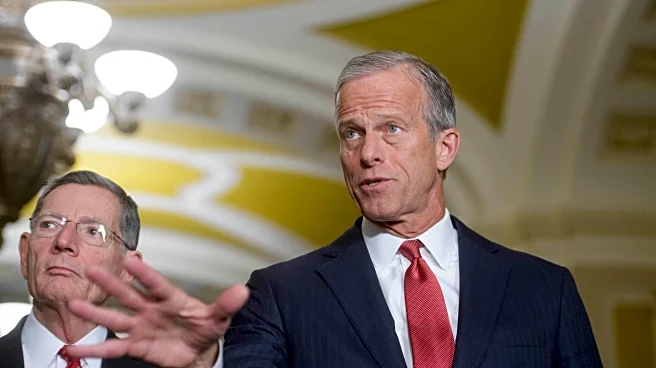What is the story about?
What's Happening?
The philanthropic sector is witnessing a shift towards systemic philanthropy, where capital is deployed alongside soft power and cultural influence to address complex global challenges. This approach, exemplified by initiatives like the World Economic Forum's Giving to Amplify Earth Action (GAEA), involves convening diverse stakeholders to align strategies and accelerate systemic change. The new model emphasizes the importance of integrating financial, cultural, and political elements to create sustainable solutions. Leaders like Luis Alvarado are pioneering this approach, leveraging their influence to catalyze global movements and foster collaboration across sectors.
Why It's Important?
The transition to systemic philanthropy marks a significant evolution in how social and environmental issues are addressed. By blending capital with soft power and cultural influence, philanthropists can create more comprehensive and sustainable solutions. This approach not only mobilizes resources but also fosters collaboration among diverse stakeholders, including governments, businesses, and civil society. As global challenges become increasingly interconnected, systemic philanthropy offers a promising framework for achieving lasting impact. It encourages a holistic view of change, considering not just financial investments but also the cultural and political contexts that support them.
What's Next?
The rise of systemic philanthropy is likely to influence how future philanthropic efforts are structured and executed. As more leaders adopt this approach, we can expect increased collaboration across sectors and a greater emphasis on aligning financial strategies with cultural and political shifts. Initiatives like GAEA will continue to play a crucial role in convening stakeholders and facilitating dialogue to drive systemic change. The success of this model could inspire other philanthropic organizations to rethink their strategies and adopt similar frameworks, potentially leading to more effective and sustainable solutions to global challenges.
Beyond the Headlines
The shift towards systemic philanthropy also highlights the growing importance of soft power in driving change. By leveraging cultural influence and convening authority, philanthropists can create the narrative tailwinds necessary for technical solutions to gain political and market viability. This approach underscores the need for a more integrated view of philanthropy, where financial investments are complemented by efforts to shape cultural norms and political agendas. As the sector continues to evolve, the role of soft power in philanthropy is likely to become increasingly prominent, offering new opportunities for impact.

















